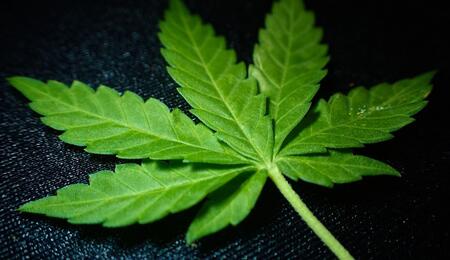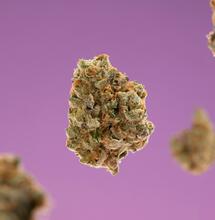THC Metabolite 11-OH-THC as Potent as THC, Shows Study

THC metabolite 11-OH-THC carries the same or similar potency as parent compound THC, a new study has found. One of two primary metabolites of THC, 11-OH-THC can get even more potent, data collected from mice suggests. THC metabolites are commonly used in drug testing for cannabis, but less is known about their bioactivity in the human body.
THC metabolite 11-hydroxy-THC (11-OH-THC) could have psychoactive characteristics that match those of delta-9 THC, the primary psychedelic compound in cannabis. The metabolite in question can be detected in blood and urine where it likely stays active for extended amounts of time and may be as potent as THC, perhaps even more potent, new study suggests.
“This study establishes that the primary metabolite of THC, 11-OH-THC, displays equal or greater activity than THC in a mouse model of cannabinoid activity when directly administered and even when accounting for route of administration, sex, pharmacokinetic, and pharmacodynamic differences,” the study authors state in the recent publication, which is featured in The Journal of Pharmacology and Experimental Therapeutics.
“These data provide critical insight into the bioactivity of THC metabolites that will inform the interpretation of future in vivo cannabinoid research and represent a model for how THC consumption and metabolism may affect cannabis use in humans,” the study says.
Most urine/blood tests for cannabis are based on detection of metabolite particles that come out as byproducts from cannabis consumption. The current research might have future implications on cannabis testing as well.
Researchers Injected 11-hydroxy-THC Metabolite in Male Rats
As part of the study, the researchers observed how the mice reacted to 11-OH-THC and compared the effects with those of THC. The data they collected reveals that 11-OH-THC was 153% as active as THC in some tests and 78% in other tests. Therefore the conclusion that 11-OH-THC demonstrated similar or even greater activity than its origin compound THC.
11-OH-THC reportedly achieved a peak concentration 30 minutes after administration, regardless of the route of administration. The byproduct compound from THC played a critical role in the bioactivity of cannabis, the researchers wrote.
What Do We Know About the 11-OH-THC Metabolite?
When carboxylated, THC is rapidly oxidized to its active metabolite 11-hydroxy-THC (11-OH-THC), before it becomes 11-Nor-9-carboxy-THC (THC COOH), a secondary byproduct that suggests THC has passed through the liver. Those are the two primary metabolites formed immediately after cannabis intake; they can be found in urine or blood for prolonged periods of time, and they are non-psychedelic in that period.
Edibles are capable of producing greater amounts of 11-OH-THC in the body than smoked flower, even though smoking leads to the sensation of high faster than ingestion. That is also one of the possible explanations why weed-laced snacks can sometimes feel more psychoactive and stronger.
THC Metabolites Are Commonly Used in Cannabis Tests
THC quickly enters blood vessels when you smoke cannabis. It takes a bit longer with edible cannabis products and oils, but it always does end up in the blood. Some of the THC is further stored in various organs in the body as well as fatty tissues.
As THC is processed in the liver, it produces over 100 metabolites. But 11-OH-THC and THC COOH have always been the two most significant ones. The first is an immediate release, while the second is formed a bit later on.
As everything else that goes into your body, THC metabolites are ultimately flushed out from the system via the urine and stool. Which explains why standard tests to detect (un)suspected cannabis consumption are based on catching metabolite particles through urine. The more THC metabolites accumulate in the body, the more time the body takes to filter out and clean itself from these particles.
Metabolic particles from THC like 11-OH-THC or THC COOH could stay in bodily fluids long after the high effect from weed is gone. They can stay in the body for at least a month and are traceable through testing. But that does not necessarily indicate that a person is intoxicated at the moment of testing. A legislative challenge that remains in many legal states is, to take this fact into consideration and ultimately make cannabis testing more fair when trying to determine if someone was impaired on the job for example.
It is only urine tests designed to detect THC metabolites that will reveal cannabis use. Regular users may have increased THC levels even after taking a T-break. Drinking more liquids, going through a detox program and doing sports, could all speed up flushing out the THC from your body, yet the effect is limited.
Also read on Soft Secrets:










